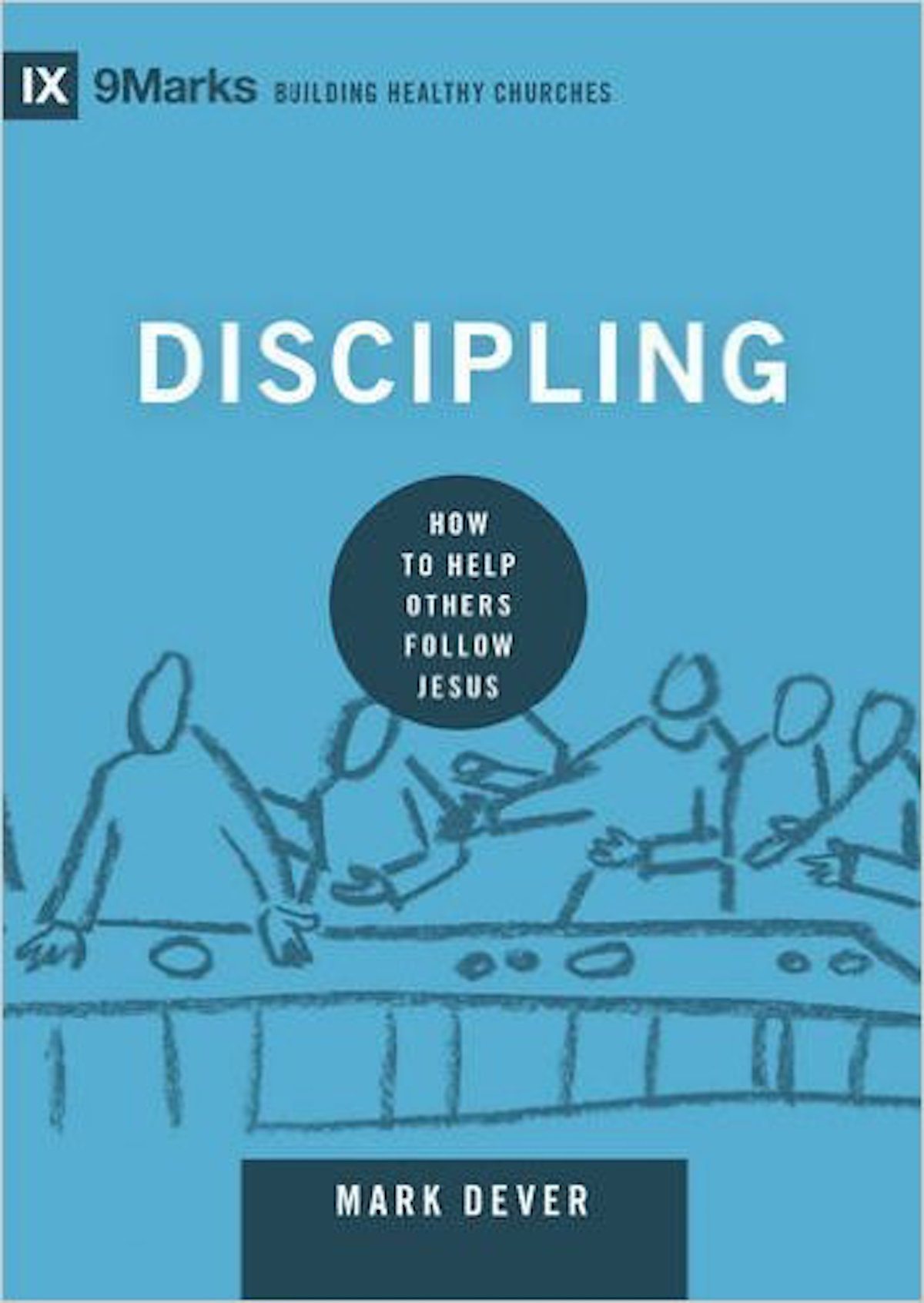Discipleship has never been in vogue. Maybe that’s because discipleship takes time, and we are driven by the urgent. This is why Mark Dever’s new book on discipleship in the local church, Discipling: How to Help Others Follow Jesus, is so necessary.
What I look for in any book on discipleship is simplicity. Too often authors make discipleship too sophisticated. They make it more than what it actually is: the natural process of life between a more mature Christian and a younger one who longs to grow in Christ. Dever’s book, though, is straightforward and clear.
The book is made up of three sections covering the definition of discipleship, where it occurs, and how it occurs.
Made to Disciple
Dever, who serves as senior pastor of Capitol Hill Baptist Church in Washington, D.C., and president of 9Marks, argues that we either influence others or are influenced by others. All of us, in a sense, are discipling or being discipled. And true Christian discipleship is deliberate and unapologetic in its goal: to change others. Additionally, as a creature made in God’s image, man is created for others. Being involved in the lives of others is a natural and normal part of the human experience. We are made to disciple.
Discipleship is toil. It can be painful, disappointing, and downright humiliating. Paul uses words like “labor,” “agony,” and “suffering” to describe it. When we engage other humans on this level, we’re dealing with nature’s most unstable force. Discipleship is costly.
Discipleship is also a divine work. We labor “according to his power that mightily works within us” (Col. 1:29). Any fruitfulness will only come according to God’s good grace. “Apart from me you can do nothing,” Jesus says (John 15:5). Ministry demands what C. S. Lewis calls the “deep magic” of God’s visitation on men to restore them back to his original design. Our discipling efforts, then, must be soaked in prayer toward the one who began a good work in us and will complete it (Phil. 1:6). We cannot trust a system or program to bring about fruitfulness when only God’s grace through his Word will do.

Discipling: How to Help Others Follow Jesus
Mark Dever
How Do We Disciple?
Discipleship is initiated. People don’t disciple people by accident; they intend to disciple others. We identify faithful followers of Christ and then challenge them to grow in divine grace through the hard work of discipleship.
Further, discipleship is done in the local church. All sorts of people join churches and are looking for help. You need only to make yourself known and be faithful in a church, and you’ll be soon pouring into others. The vehicle of the church provides a habitat for discipleship that will continue for the rest of your life. No church ever hangs a “No Help Wanted” sign.
Discipleship also involves teaching. Mentoring stresses a relationship, but discipleship stresses context. One thing that needs to be added is curriculum. Few laypeople can come up with their own study, and thankfully there’s no need to reinvent the wheel. Good curriculums are out there, and every church needs one they can trust.
As expected, Dever’s strong ecclesiology comes out in the book. Some might disagree with some of his convictions and practical applications. For example, as a senior pastor I see the preaching and teaching of God’s Word as one of my primary roles, so I’d never give up my pulpit to others as often as Dever does (40 percent of the year). Other areas of responsibility can be delegated to disciples. Additionally, our church doesn’t have staff as elders, and our elders move forward only after reaching a unanimous decision—a church vote can lead to a church split.
Great Place to Start
Discipling deals with the Christian responsibility to bring others to maturity in Christ. That’s a core issue. The book is rightly heavy on a biblical philosophy of discipleship and the church’s role in discipleship, but it’s somewhat light on technique and method.
So if you’re looking for a book that lays out the importance of discipleship and gives you the basics, Discipling is a great place to start. But if you’re after a resource that will help an individual or church initiate a particular strategy or process of discipleship (for example, specific curriculums, plans for individual discipleship, a comprehensive church strategy for disciplemaking, dealing with explicit problems that arise in discipling, and so on), you’ll need to supplement this helpful book with other material.




























